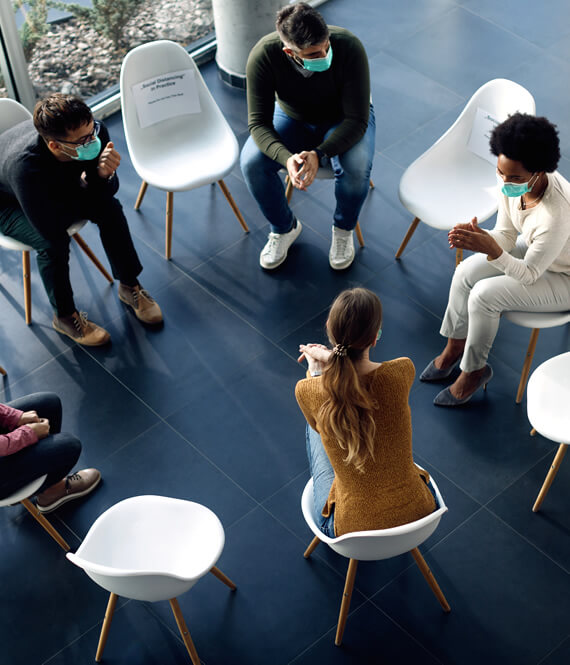
Addiction Recovery In A Post-Pandemic World: 3 Things To Know
We recommend helpful products in our articles. Read our full disclosure here. The content on this website is not intended to be a substitute for professional advice, diagnosis, or treatment.
The COVID-19 pandemic had a devastating impact on people’s lives.
Many lost their loved ones, got isolated, and lost their jobs.
However, the effects of the pandemic still remain.
Some feel helpless.
Others experience mental health problems, like anxiety or depression.
There are also those who have to deal with addiction.
In fact, the pandemic has only worsened the addiction epidemic.
Because of fears and problems it brought on, people turn to alcohol or drugs to cope.
Furthermore, the pandemic has made it harder to recover from addiction.
Anxiety over contracting the virus, feelings of loneliness, and financial insecurity are some factors that have made recovery quite challenging.
You can read this informative post or check out other online sources to learn more about how the pandemic affects addiction recovery.
Hence, it’s more important than ever to focus on your recovery.
Recovering from addiction won’t be easy, but with a strong support system and a desire to live a better life, you’ll be able to overcome your struggles.
Here are a few things to know about addiction recovery in a post-pandemic world.
Professional Help Is Crucial
Seeking professional help will be necessary.
Rehabilitation centers, including alcohol rehab clinics, have a structure that will help you fight addiction.
They offer treatment programs that involve counseling sessions and enriching activities.
Moreover, they give breaks in between activities, so you can relax and reflect on what you’ve learned.
Counseling
During counseling sessions, you’ll get to the bottom of the problem and figure out how to address it effectively.
There are several types of therapy.
One is individual therapy.
You do a self-analysis, looking into when and why you started depending on and misusing a substance.
You also develop strategies on how to cope better and be more productive.
Another type is group therapy where you’ll meet peers that share similar struggles.
The sense of community support will help you feel confident and motivated to face your problem head-on.
Most rehab facilities provide programs that include family therapy as well.
Through this kind of therapy, issues are addressed and resolved, so family members can be a source of strength and support after you leave the facility.
Group Activities
There are activities you’ll participate in when you undergo group therapy. Daily meditation is an example.
A session usually begins with a brief meditation.
Reading a meaningful passage and reflecting on it is a common form of meditation in group therapy.
‘Checking in’ is an activity where group members introduce themselves and share how they’re feeling.
It helps you learn to socialize with others and become more self-aware and empathetic.
Detox
At the beginning of your recovery, you need to get rid of addictive substances in your body.
This process is called detox.
While on detox from alcohol or other drugs, you’ll experience intense symptoms, such as seizures, nausea, anxiety, depression, and muscle aches.
Certain medications may be given to ease withdrawal symptoms, like antidepressants.
A Relapse Is Possible
Even as you recover, you might have a relapse.
This happens when you fail to achieve your goal of overcoming your addiction.
However, a relapse is part of recovery.
So, going through it doesn’t mean you’re weak or a failure.
It’s just that some situations will make you want to depend on alcohol or drugs again.
For example, problems at work, social stigma, or family conflicts may trigger substance use.
You’ll need a strong mindset to deal with those triggers. Here’s how you can prevent a relapse:
Avoid Enablers And Triggers
Enablers are people that make it easy for you to access drugs or alcohol whereas triggers could come in the form of things or places.
For example, the more you hang out at sports bars, the more you’ll be tempted to have one drink.
Before you know it, you’d have had several drinks.
The same applies to hanging out with people who frequent casinos.
If you accompany them, you’ll want to play one round.
But with just one round, you’ll find yourself going back to the swing of gambling.
Find Support
Don’t hesitate to ask for help.
You’re never alone in your struggles.
Turn to people you trust, like therapists, friends, and family.
Do Engaging Activities
Aside from building a strong support system, do what makes you happy.
Take a stroll.
Read a good book.
Go on a hike.
Join a choir or a sporting group.
There are many activities you can try.
You just have to choose what interests you the most.
Healthy Habits Are Life-Changing
Form simple but healthy habits and incorporate them into your daily routine.
If you feel stressed, make juice with a blender.
You might even enjoy shopping for ingredients to prepare refreshing drinks.
Keeping your place neat is a healthy habit too.
Make your bed in the morning.
Wash the dishes.
Do the laundry.
Vacuum the floor.
Get rid of clutter.
Just seeing a clean space will make you feel accomplished and at peace with yourself.
Conclusion
The pandemic has made it more difficult to battle addiction.
But with a pillar of support and courage, you’ll be able to recover in this post-pandemic world.
"We love to research problems, examine studies, analyze solutions, and share with you ideas that make life healthier. You can learn about us and our editorial standards here. Have suggestions or feedback to share? Send us a message!."








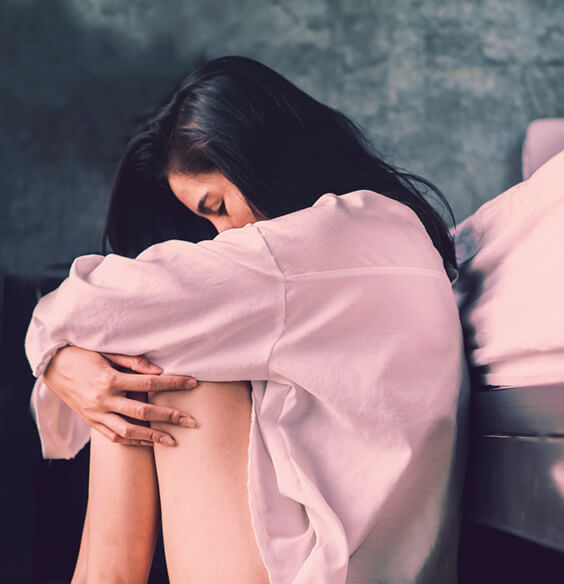
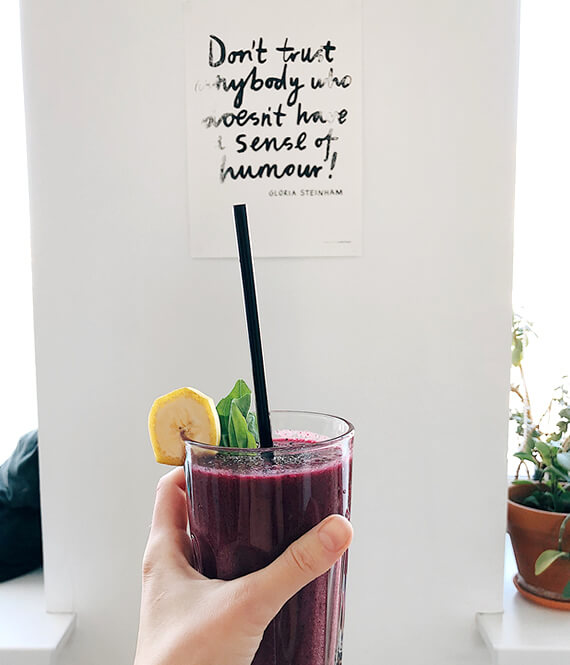
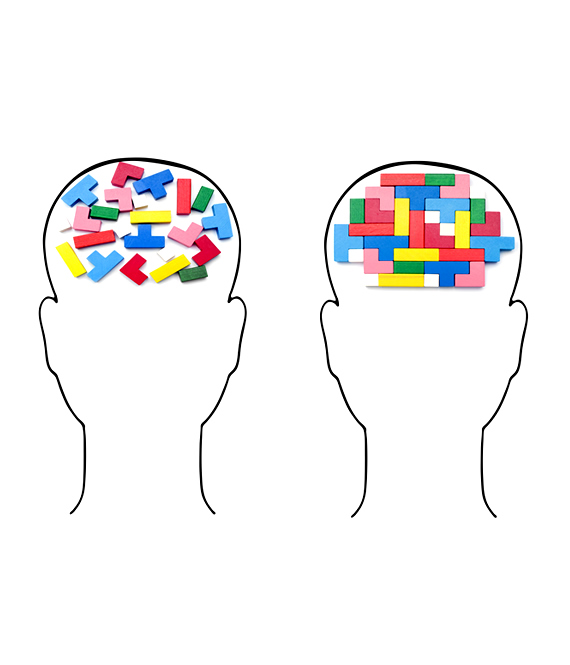

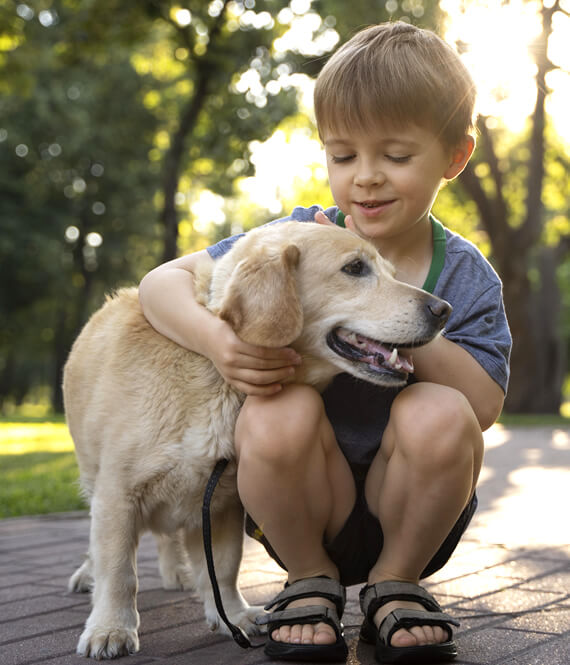
Leave a Comment